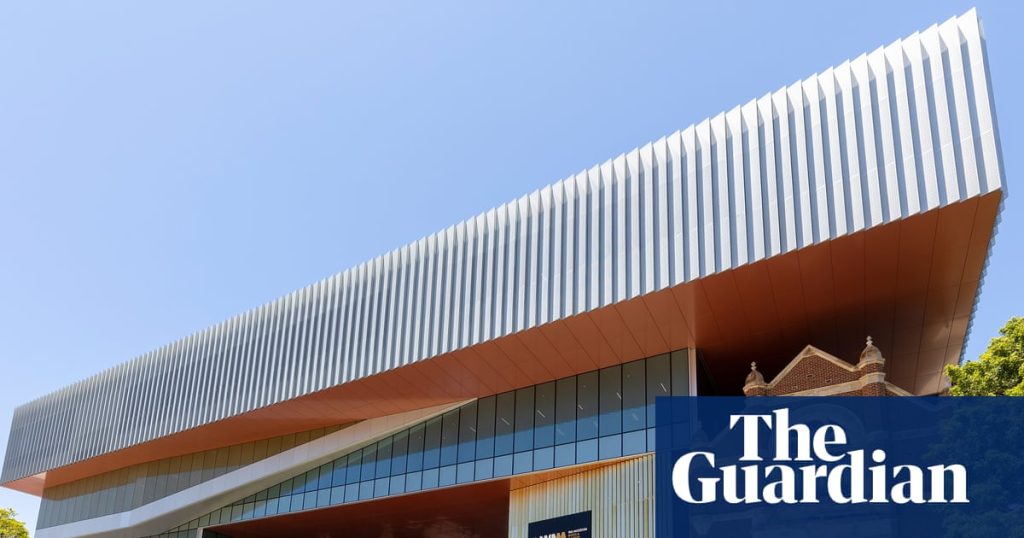The Western Australian Greens and the state’s peak conservation body have condemned the extension of a research partnership between the Western Australian Museum and Woodside, as the state reels from a record-breaking marine heatwave that has killed corals over a 1,500km stretch of ocean.
The five-year continuation of the “longstanding collaboration”, in which the gas giant supports the museum’s biodiversity research along the WA coastline, would allow for further targeted research along the Gascoyne coast, according to announcements.
In a post on its LinkedIn page, the museum wrote that “to mark the milestone” Woodside was supporting free general admission to the WA Maritime Museum on Sunday 17 August for the “Woodside Energy Open Day” and the event would feature “family-friendly activities all about marine science” as part of National Science Week.
https://www.theguardian.com/australia-news/2025/aug/12/was-longest-and-most-intense-marine-heatwave-killed-coral-across-1500km-stretch
The new deal – which extends the 28-year partnership – and the open day have been promoted in front-page advertisements in WA media this week.
Sign up: AU Breaking News email
It has prompted fury from climate advocates and the WA Greens as it coincides with the release of research about the extent of the damage caused by a record-breaking, climate-change fuelled marine heatwave to the state’s coral reefs.
The heatwave, which started to build off the north-west WA coast in August 2024, has been called “the most severe coral bleaching on record for Western Australian coral reefs”.
If there is funding required the government should show some leadership and actually put up the money
Conservation Council of WA executive director, Matt Roberts
It killed coral throughout an area that stretches 1,500km, according to a group of scientists from state and federal government departments, agencies and universities who worked on this week’s report.
The WA Greens fossil fuels and climate action spokesperson, Sophie McNeill, wrote to the museum on Tuesday seeking a briefing from its director, Alec Coles, “because it seems like they [the museum] don’t understand the relationship between fossil fuel companies and the devastating impacts of climate change we are seeing right now on our marine environment”.
“It is so inappropriate that the WA Museum has chosen to continue its partnership with one of the world’s largest fossil fuel companies as our world heritage listed coral reefs are literally dying in front of our eyes,” McNeill said.
“As one of the state’s biggest polluters, Woodside should not be allowed anywhere near marine science in Western Australia given they are responsible for the current devastation we are seeing along our coastline that is so universally loved by all.”
McNeill expressed concern that children visiting museums to learn about oceans were being exposed to branding from “the very same fossil fuel giant that is contributing to the death of our coral reefs”.
“It is deeply alarming that our precious institutions here in WA are so deeply captured, just like the WA Labor government, by fossil fuel companies like Woodside,” she said.
In a statement, a spokesperson from WA Museum described it as “independent, science-led, and committed to the people and the environment of Western Australia”.
The spokesperson added that WA Museum relies on “a diverse range of funding sources – including government, competitive research grants, philanthropic contributions, and corporate support”.
Sign up to Breaking News Australia
Get the most important news as it breaks
Privacy Notice: Newsletters may contain info about charities, online ads, and content funded by outside parties. For more information see our Privacy Policy. We use Google reCaptcha to protect our website and the Google Privacy Policy and Terms of Service apply.
after newsletter promotion
They continued that “engaging constructively and transparently with industry” allowed WA Museum to expand knowledge of WA’s ecosystems, “foster dialogue between sectors” and “ensure that decisions about environmental impact are informed by the best available science”.
The Conservation Council of WA said the museum, as a state government institution, should reject the extended sponsorship arrangement.
“If there is funding required the government should show some leadership and actually put up the money and ensure that important research is still continuing,” the executive director, Matt Roberts, said.
“So that we’re not relying on the very industry that is causing our marine systems to be on the brink of collapse to fund the research into that collapse.”
Roberts said the council was organising a “requiem for our reefs” at the Maritime Museum on Sunday to highlight the “devastating impact of Woodside’s emissions on WA’s coral reef system, and calling for public support to stop Australia’s biggest polluter from drilling for new gas under the pristine Scott Reef in the Browse Basin”.
Paul Gamblin, the chief executive of the Australian Marine Conservation Society, questioned Woodside’s motives, asking “What do they seek to gain from it?”
“Particularly given the very clear evidence of the marine environment coming under increasing stress, one might imagine we’re going to see more of this kind of sponsorship and public relations.”
The spokesperson for the WA Museum said “Woodside neither directs the research, nor participates in it [and] the Museum retains all intellectual property generated, other than that vested in Traditional Owners”.
Woodside referred back to the company statement released last week, which said the ongoing collaboration had “led to the discovery and description of numerous new species, and significantly increased understanding of the marine environment of Western Australia”.
The chief executive, Meg O’Neill, said last week “this renewed collaboration reaffirms Woodside’s commitment to responsible environmental management and the ongoing discovery of WA’s unique marine biodiversity”.

